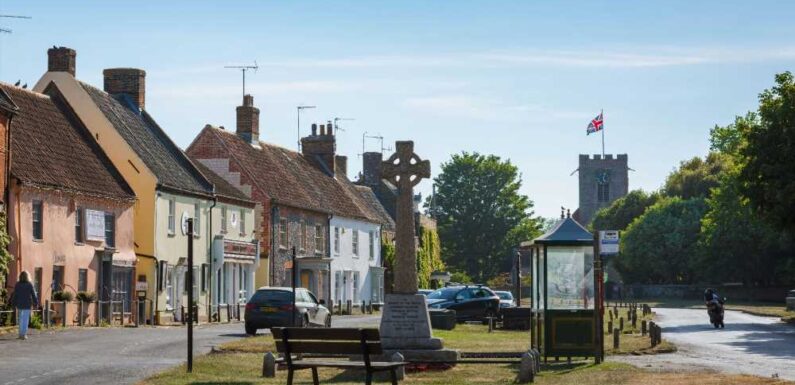
LOCALS in a seaside town dubbed 'Chelsea-on-Sea' have voted to ban second homes because locals feel they are being priced out.
Burnham Market in Norfolk has been given the nickname because of the large proportion of Londoners who have snapped up second homes in the village.
The dreamy English village with a green, pub and church has become a haven for Londoners keen to escape the hustle and bustle of the city.
Droves of Londoners have bought up second homes in the village, but now locals have had enough.
The average house price is now at around £1,000,000 and locals fear they are being priced out.
Those who remain have warned that the area being 'hollowed out' by the large number of properties which are often left empty.
Read more in property

Property guru Phil Spencer on three things to always focus on when buying a home
But a recent referendum in the coastal town has seen locals overwhelmingly back a bid to limit the number of second homes and holiday lets.
More than 80 percent of voters supported the introduction of new measures to curb such properties, by putting conditions on all new developments.
These require them to be 'principal residences' and ban existing homes being turned into holiday retreats.
The proposals only needed 50 percent approval to come into force but in reality the final figure was much higher.
Most read in Property

I took a HUGE gamble & bought a house for £311,000 without viewing it first

Property guru Phil Spencer on three things to always focus on when buying a home

I bought house WITHOUT viewing it – sweet edition made it feel like home

I was denied permission to transform my ugly home – so I got my revenge
Dennis Clark, chairman of Burnham Market parish council, said: "The vote in favour was very strong. It's a good result for a referendum.
"When we put out an early document for people to comment on, they could do so from their armchair but for this they had to go out and vote and they have made their feelings clear.
"It's a positive move forward for the village because it is what the village wants.
"We don't want to keep people away from Burnham Market, but we want to encourage lower-cost housing so that the people who work here can live here.
"We need young people to be able to stay here to keep the village vibrant."
It is estimated that one in four properties in Burnham Market is a second home, and the population has fallen by more than a fifth in just two decades.
A 2021 census revealed Burnham Market has 724 residents.
Of them, some 635 people were eligible to vote in the village, with 201 casting their ballot – a turnout of 32pc.
In total 161 – 80.1pc – voted in favour and 40 – 19.9p – voted against. Now the proposals have been approved they will become part of the village's neighbourhood plan which will be used to guide West Norfolk Council when determining local planning applications.
North West Norfolk MP James Wild said:"Many constituents have raised concerns about the impact of holiday lets and second homes and the government has already introduced measures to help strike a balance to have sustainable local communities and support tourism.
"The plans approved by residents including a principal residency test will mean the needs of local people for affordable homes to rent or buy are taken into account when considering planning issues so we can have vibrant villages.
READ MORE SUN STORIES

Pepsi brings out new 'best ever' flavour – but not everyone agrees

Will Best reveals HUGE change to new Big Brother as iconic feature scrapped
“Such covenants already apply to some properties in parts of north west Norfolk and have been used recently for a development in Hunstanton.
“Instead of a blanket approach it’s important to recognise that in different places different issues will arise and local people’s views should be listened to as part of fostering sustainable villages and coastal towns.”
Source: Read Full Article


